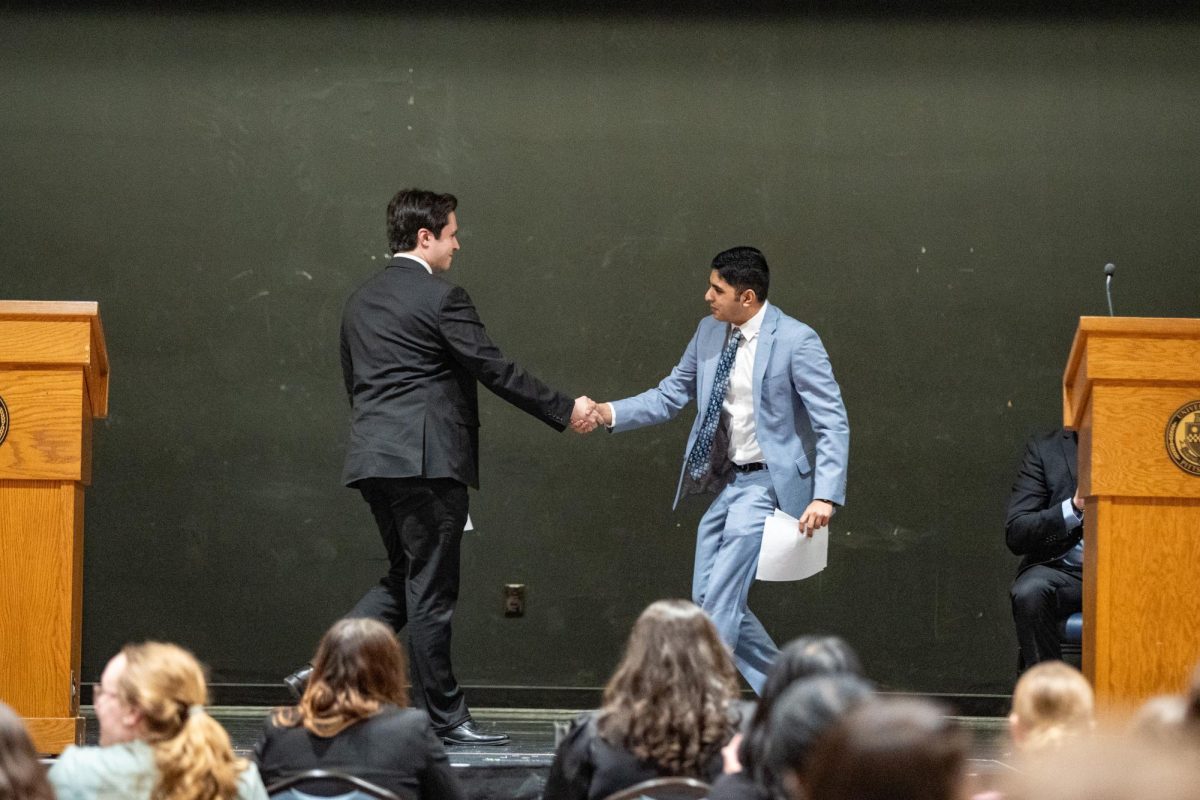Panel explores new teaching
October 15, 2002
A short time after the Sept. 11, 2001, attacks, visiting lecturer Stacey Waite attempted to… A short time after the Sept. 11, 2001, attacks, visiting lecturer Stacey Waite attempted to discuss Allen Ginsberg’s “America” to the students in her poetry class.
But instead of a lively conversation, she was faced with a tense silence from her students, some of who said they found the poem offensive in its anti-American sentiments.
She ended her story with a comment from one member of the class: “When you’re at war, you have no choice but to feel this way.”
Waite said she remembers writing the words “we have no choice” on the blackboard, then directed the discussion toward what kinds of choices they can make about their feelings and opinions. Still, in spite of her usual “in your face” teaching style, she admitted to feeling “a little too scared” to confront this student mentality.
Waite and other members of Pitt’s faculty addressed this issue at the English department’s Pedagogy and Difference Committee’s forum entitled “The Culture of Patriotism: Teaching After 9/11,” held on Wednesday at the Cathedral of Learning.
There, a panel of English department faculty, which included professor John Twyning, teaching fellow Jeff Aziz and Waite, led a dialogue about the problems they had faced in teaching after Sept. 11 and how they could adapt their teaching methods as the nation moves from a period of mourning to preparations for war.
In addition to Waite’s presentation of Ginsberg’s “America,” Aziz also related his experiences with uniting his curriculum to the attacks.
In his Introduction to Shakespeare course, he was able to reflect the atmosphere of mourning in Hamlet and the political maneuvers of part one of “Henry IV” and “Henry V” onto the national sentiments and plans for responding to the attacks, which he claimed helped his students understand and deal with the situation.
“My students didn’t have to be dragged kicking and screaming into the conversation,” he said.
Instead, he said the course material allowed them to view the present moment with a sense of historical perspective, adding, “It’s been possible in the last year to have really productive conversations.”
The faculty members then focused on their students’ emotions and beliefs after the attacks, what the origin of their discomforts and newfound patriotism might be and how they as teachers should respond.
Waite commented that the patriotism she felt in her poetry class had not been dormant and reawakened by the attacks, but instead had been constructed by “what they are watching and what they are listening to.”
Those who attended the forum deliberated about to handle these issues, but also emphasized the need to break down the myth perpetuated in U.S. history that America’s international activity has always had purely positive effects.
While the events on Sept. 11 may have reinforced this mythology, Aziz said “the ideology of the moment is so blatant that the cracks do show.”
Moreover, Aziz said, “We need to have intellectual respect for our students,” adding that teachers creating opportunities for intellectual discussions in the classroom will counter the anti-intellectualism in the media.
“We’re in a moment where our students recognize that the way we work can speak to the current moment,” he said.


